@emeraldking I gave the male a pretty high concentration salt bath (almost ~2tsp per 2l) and the spots/bumps on his skin seem to have gotten worse for some reason. There's now more than before, and they seem to be more prominent. I also noticed a few long strands that looked like tiny hairs or very thin worms starting to come out from the bumps following the salt bath (there was a really long one attached to his tail, but it fell off pretty quickly & I'm not sure if it wasn't just a strand of hair algae, since there's a lot of it in the tank with him. But it looked disgusting

) Plus he has a bunch of tiny white streaks on his dorsal fin and tail (pictured). I've taken a few pictures (ignore the long hair, that's not from the fish - just some debris stuck to the glass). The photos are magnified so the bumps probably look a lot worse than they do IRL. It kind of looks like a combination of epistylis (although the bumps aren't as white as you'd expect them to be...) and parasites of some kind...? He has no other symptoms, he's active, eating and pooping fine & his fins aren't clamped. He's not shimmying anymore either (I think that was from the stress of the previous treatments). The fish in the display tanks are also doing well. The male from the previous post now also looks OK - the white spot became flatter, then turned greyish and has now almost disappeared as far as I can see. No new ones have developed. It almost looked like something burrowed into the skin and then vanished, but the fish don't have any wounds or sores, and their behaviour hasn't changed either. I haven't got a clue what this is. I'm planning to continue the salt dip & see what happens. Thing is, I can't use this much salt in my display tanks because I will pretty much kill everything

So I'm now torn between running the aquariums through a UV sterilizer (attached to the filter output so it doesn't harm the beneficial bacteria), OR dosing all the fish with praziquantel as a preventive measure... do you think either of those is a good idea?
Thanks in advance, I am honestly SO confused... I really want to let the quarantined male back into the main aquarium asap, but Idk if it's a good idea given his current condition



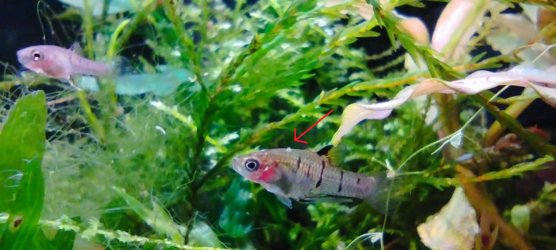
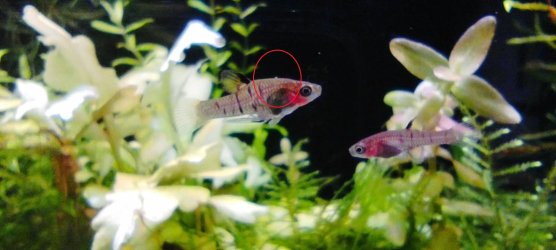
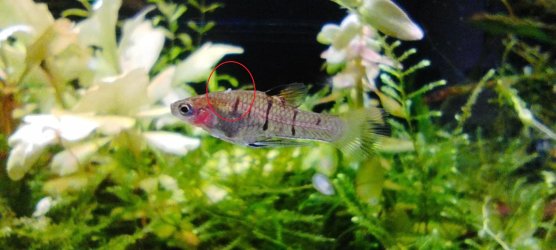
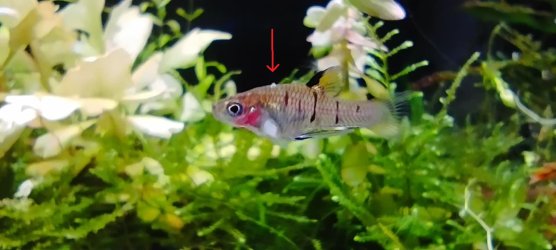
 ) Plus he has a bunch of tiny white streaks on his dorsal fin and tail (pictured). I've taken a few pictures (ignore the long hair, that's not from the fish - just some debris stuck to the glass). The photos are magnified so the bumps probably look a lot worse than they do IRL. It kind of looks like a combination of epistylis (although the bumps aren't as white as you'd expect them to be...) and parasites of some kind...? He has no other symptoms, he's active, eating and pooping fine & his fins aren't clamped. He's not shimmying anymore either (I think that was from the stress of the previous treatments). The fish in the display tanks are also doing well. The male from the previous post now also looks OK - the white spot became flatter, then turned greyish and has now almost disappeared as far as I can see. No new ones have developed. It almost looked like something burrowed into the skin and then vanished, but the fish don't have any wounds or sores, and their behaviour hasn't changed either. I haven't got a clue what this is. I'm planning to continue the salt dip & see what happens. Thing is, I can't use this much salt in my display tanks because I will pretty much kill everything
) Plus he has a bunch of tiny white streaks on his dorsal fin and tail (pictured). I've taken a few pictures (ignore the long hair, that's not from the fish - just some debris stuck to the glass). The photos are magnified so the bumps probably look a lot worse than they do IRL. It kind of looks like a combination of epistylis (although the bumps aren't as white as you'd expect them to be...) and parasites of some kind...? He has no other symptoms, he's active, eating and pooping fine & his fins aren't clamped. He's not shimmying anymore either (I think that was from the stress of the previous treatments). The fish in the display tanks are also doing well. The male from the previous post now also looks OK - the white spot became flatter, then turned greyish and has now almost disappeared as far as I can see. No new ones have developed. It almost looked like something burrowed into the skin and then vanished, but the fish don't have any wounds or sores, and their behaviour hasn't changed either. I haven't got a clue what this is. I'm planning to continue the salt dip & see what happens. Thing is, I can't use this much salt in my display tanks because I will pretty much kill everything 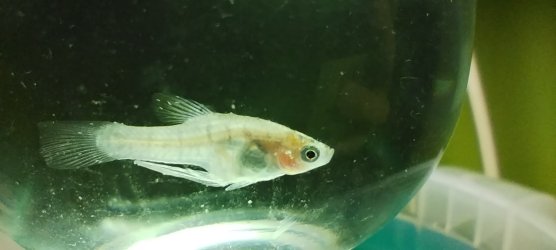
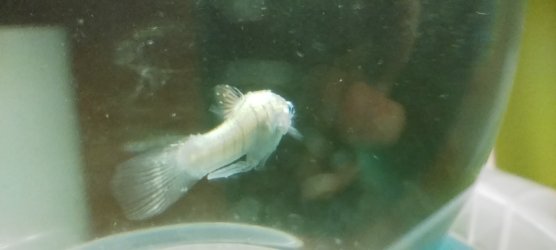
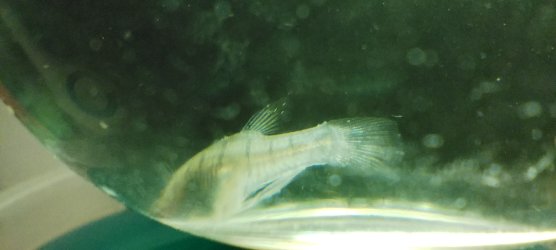
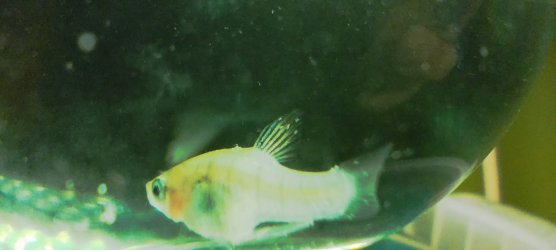
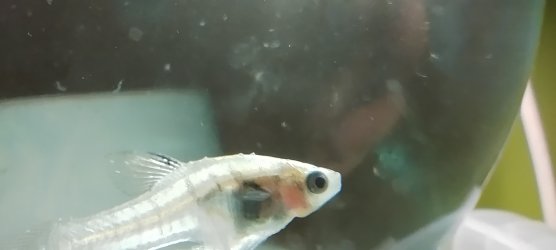
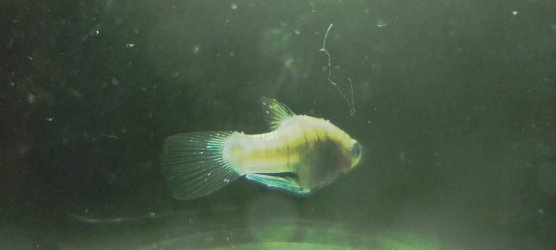
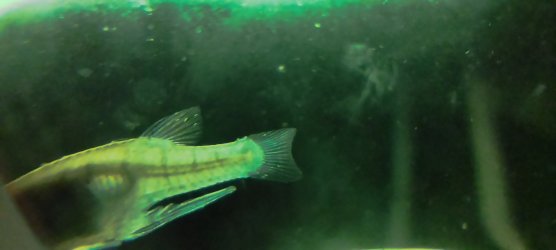
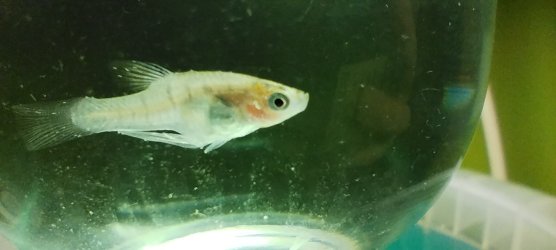
 All the other fish are doing great, growing and breeding (just found my first baby a few days ago!
All the other fish are doing great, growing and breeding (just found my first baby a few days ago!